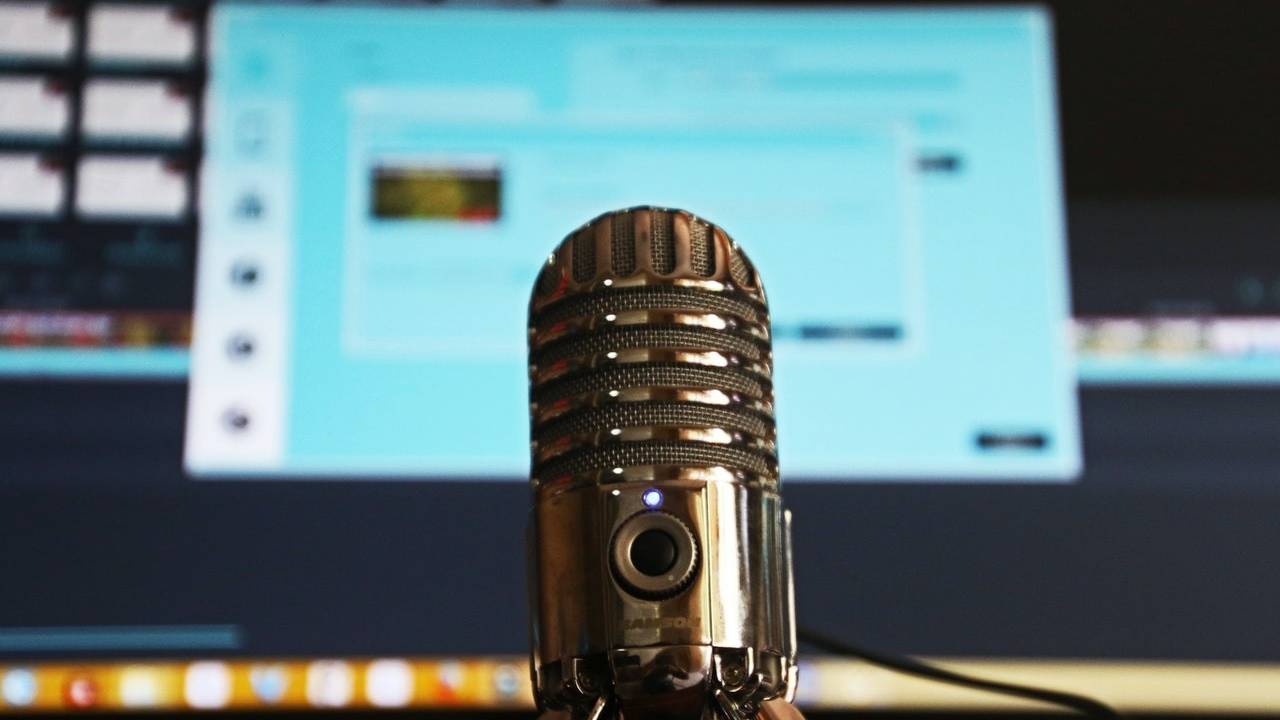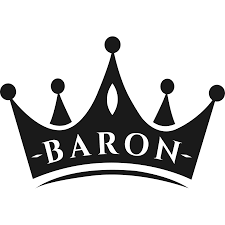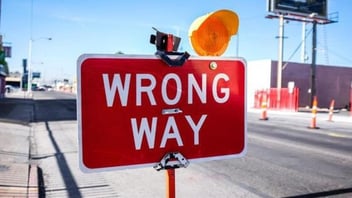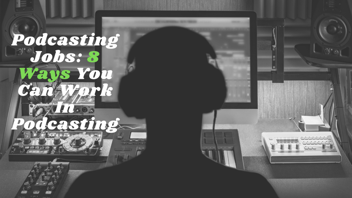
Before we dive into whether or not you should be podcasting, we first need to cover what a podcast is.
Why?
Because believe it or not, people think a podcast is only an audio experience; however, that's shifting. It's becoming a video and audio experience, especially with big names like Joe Rogan's Joe Rogan Experience, Logan Paul's ImPaulsive, and many more.
So.
What Is a Podcast?
A podcast is simply an audio/video program, like a talk show on the radio but more hip. Instead of the old-fashioned way of doing a radio show in a studio, you subscribe to a podcast via your phone, computer, or another device that can get on the internet.
Essentially, a podcast lets Internet users take audio files (typically MP3s) from a podcasting website and is focused on a topic or theme, like exercising or marketing your business. You can subscribe to a show with an app on your phone and listen to any episode whenever or wherever you choose.
One of the primary benefits is they can be downloaded on your mobile device. It's very convenient when you're in areas with bad service and want to say "in the know" about your favorite topics. Some people listen to podcasts on their way to work while others fall asleep listening to their favorite podcast or mediate to a daily podcast series midday. Podcasts options are endless, and there is something for everyone.
It's a great way to follow one topic or genre for a long period of time and gives you the flexibility of tuning in after the show is recorded when it's convenient for you.
Should You Start a podcast?
There are some serious benefits to starting a podcast. It's important to cover all of those before you decide should you start a podcast. Some people don't realize all the benefits you get from having a show. My podcast, the Brutally Honest Podcast, is in the top 3% of the world, and I can firmly attest that all of these are true and not only does your podcast need it, but it benefits you as a person or company looking to get into it.
Connect With Other Audiences & Creators
When people listen to their favorite podcasts, they feel connected and can learn, as well as enjoy what the podcaster has to say. Podcasting has become a popular way for people to relax and learn valuable information about any topic they might be interested in. If you're not sure how much information you can learn, there are millions of episodes and everyone from middle schoolers to doctors creating them. The information is invaluable, and a lot of the time can only be found either by knowing what to Google or stumbling upon a podcast and subscribing for some time.
Podcasts are growing fast. An article published April 25, 2018, by FastCompany states, there are more than 525,000 active shows and over 18.5 million episodes.
There is also massive potential for connecting with new people. Not just your audience but people in general. If you're looking to connect with new and interesting people, a podcast is a great way to get their attention. Along with that, it's a unique way to speak to people who normally wouldn't take your call or have a conversation with you. I know it may sound strange, but personally, having a podcast has allowed me to become friends with people I never thought possible, and it continues to benefit the show and my business regularly. It's also helpful for connecting with others on social media and starting conversations.
If you decide to start a podcast, keep in mind, it should be original content and something you are interested in and can talk openly and passionately about to others.
Here are some tips:
- A podcast can be any length, from 1-minute to a 3-hours. (sometimes more although extremely rare)
- A podcast can be daily, weekly, monthly, or however often you choose. (its important to be regular)
- A podcast can be any format, from a solo gig to a multi-person audio and video show.
- Podcasts can cover any topic. Seriously, any topic.
- Be active on social media and share every show you create.
Where Do People Listen to Podcasts
The most common ways people listen to podcasts are in the car, at the gym, cutting the grass, or cooking – basically anywhere.
Did you know 75 percent of the US population is familiar with the term "podcasting" – up from 70 percent in 2019 (Infinite Dial 2020)
Each podcast you listen to should have a unique setup. Most commonly, its a show opener like a welcome message; after that is the meat and potatoes of the episode, and it closes out with a closing message. After a while, you will begin to see that each podcast has its own unique sequence they follow. This is great for timing the show and picking where you plan on listening.
The host or hosts will talk about a topic in every episode. Often, it is specific, like "how to market yourself" or "body training," and other times, it is more general, like how to be happier.
Types of Podcasts & Niches
Many podcasts are simple. It may be some friends talking about a topic they like films, books, or creating a business. But some are very professional with theme music, sound effects, professional editing, and more.
The more professional podcasts are wonderful to listen to, but they take time and money to produce. The amateur shows might seem a little, well, amateurish, but this means they can create and get it out more often and grow a regular following.
Most people listen to both since the biggest attraction to most podcasts is the host or hosts, which ultimately, means you regularly listen to those topics and hosts that appeal to you.
Thanks to technology, making podcasts has become easier and more accessible than ever before. The basic equipment needed is your mind and vision.
If you want to seriously think about creating a podcast, you will need to learn how to begin from scratch. Next time, we will cover how to do just that, create a podcast that could build your brand beyond your wildest dreams.
Now that we covered what the types of podcasts are, let's get down the details of what you would need to do if you wanted to start a podcast.
What Should My Show Be About?
Your podcast should be about whatever you are an expert or semi-expert in. There are shows about everything, and I mean everything. My friend Jeremy Starke has a podcast called Brick Finds & Flips, where all he talks about is investing in Legos. There is no shortage of topics you can talk about, and that's the best thing about it. The key is you have to have some knowledge on the topic and be genuinely interested in it. After that, believe it or not, the rest of the podcasts are a breeze. Think about something you can talk about for hours and hours, and there is your topic. If you're anything like me, you might be thinking, what if I get bored of that topic. Trust me, there are so many little rabbit holes you can go down that will keep you entertained for years to come.
How Often Should I Release New Podcast Episodes?
The general rule of thumb is once a week. That doesn't mean you have to do it every week. Some people do "sprints" where they record a bunch of shows in a row and call them seasons. Other people do them when they can. The goal is to be consistent. Pick a schedule that works best for you and follow it if you can do it every day. Great! Do it every day. The show Entrepreneur On Fire is recorded once a week, and he does all seven shows in one day. He spends his whole day editing and schedules them to be published throughout the week. Do what works for you. Just commit to being consistent with whatever you pick.
How to Title My Podcast Episodes To Make People Listen
Get creative and fun. The preferred format is the show number and the subject of the show or the person's name. It's that simple. Give people enough information to catch their attention and click on your episode. That's the goal is to get them to start listening from there; it's all about your show. A quick tip is to search the topic of your show on your favorite podcast apps. From there, see what everyone else is doing. Is it a catchy title? Is it someone's name? Get creative and have fun. The key to having a successful podcast is to enjoy it.
How Long Should My Episodes Be?
It doesn't matter. Seriously. The only thing that matters is how consistent you are. If your shows are going from 5 minutes to one hour and then down to ten minutes, no one is going to listen. You need to be consistent with your show however long you decide. People debate that twenty minutes is the best time for a podcast. I strongly disagree. There is no ideal time. Twenty minutes is a great amount of time for a show host because it's not too long, and you can publish your show in about an hour, but the big names in the podcasting industry have shown much longer than 20 minutes. Do what you feel comfortable with and stick with it.
Create Episode Subjects
Once you have a title and figure out how long your episodes are going to be next is to create episode subjects. This is where search engine optimization comes into play. You want to write enough to capture the attention of the reader who is scanning episodes, as well as enough for the podcast search engines to pair searches with your shows. Typically a bio, show notes, or bullet points works best. It gives enough information to the reader and makes them want to hit play on your show.
Podcasting with friends & colleagues
The easiest way to start podcasting is to start with friends and colleagues in the industry. Whatever your show may be, leverage people you know who are great speakers and have them on the show. It makes having a show a million times easier and removes the stress of not knowing what to talk about. Conversations will naturally flow, and it's a great way to iron out all the mess-ups you will have along the way.





